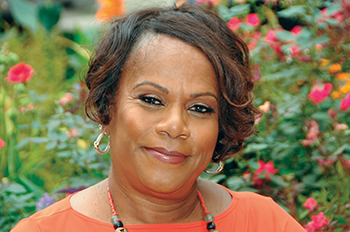
The terms ally and allyship have been widely used in recent decades to describe the quality of human empathy and support extended to individuals by those from other backgrounds, often in the case of suffering.
While cautious not to oversimplify the function or value of allies, I think of allies as individuals eager and willing to bear witness to the pain of others around the globe and to be supportive (in ways great and small) of the agendas the sufferers create. In fact, the famous quote of pioneer Zen master and author Bernie Glassman asserted, “When we bear witness, when we become the situation — homelessness, poverty, illness, violence, death — the right action arises by itself. We don’t have to worry about what to do. We don’t have to figure out solutions ahead of time. Peacemaking is the functioning of bearing witness. Once we listen with our entire body and mind, loving action arises.”
That is the personification of allyship: being able to tolerate the exploration of complex issues, being willing to stay in the figurative room. Through his quote, Glassman helps us appreciate that our willingness to be present for others without compartmentalizing our thoughts and attention is one of the most profound acts of love. Allyship is about the great act of being present—present with others in pain; present with those in need. As social workers, we must explore the ways in which we have opportunities to be present for people around the globe.
In 2020, the death of George Floyd provided us with the opportunity to be present (or allied) with those who suffer multiple marginalization and system-level oppressions that leave them more susceptible to intersecting forms of racism.
We also had the chance to explore the social determinants of health in predominately Black, Brown, Latino/a/x, Indigenous, Asian, Asian American and Pacific Islanders communities and examine the ways in which our nation’s history of separation based upon race influences health care.
In recent months we have had the opportunity to demonstrate our solidarity with other oppressed people and nations, as we watched Ukrainians displaced by Russian attacks. Despite the magnitude of that ongoing atrocity, we have not looked away from efforts in states, like Florida, to suppress the lives and stories of members in the LGBTQIA+ community. Through all these instances of individual and community suffering we had the opportunity to be present (through care and concern) for someone.
We witnessed the racist attacks by a white supremacist in Buffalo, who senselessly murdered innocent members of the community because of their skin color. Then we were brought to our knees by a mass shooting at a Texas elementary school that left 19 children and two teachers dead.
As each of these communities experience trauma, allies have opportunities to limit future atrocities and create sustainable change. No longer can allies waste these opportunities by offering condolences. They must take real action.
The question to allies is: How are you choosing to be present in the world? I hope it’s by staying in the room — literally and figuratively — to learn about the issues that directly connect to enhance the dignity, worth, protection, and provision of people who do not look like you, or eat the food you do, or call upon the same God that you do — if they call upon a God at all. You listen rather than fleeing when the discussions become uncomfortable or unfamiliar to your lived experience.
Allies must commit to hearing stories that challenge long-held beliefs about our nation, the systems therein, and the people who have historically maintained control and power. Allies cannot use their power to silence voices that differ from their perceptions or beliefs. Allies must learn how to inspect their biases. Allies listen attentively to support the voice of those affected. Allies stay in the room and learn firsthand the pain suffered by those who are oppressed.
Doshin Nathan Woods reflected in the Spring 2017 issue of Buddhadharma: The Practitioner’s Quarterly:
“In the months and years to come, we will have plenty of opportunity to participate in new movements of human dignity and redistribution as people step forward to describe their visions of solidarity in the face of injustice.
The first step, of course, is to see through our conventional limitations and stand against injustice by listening to the voice of the other crying out. By letting go of who we imagine ourselves to be and cultivating a non-clinging heart, we can learn to accompany each other in an embodied way and live in community—and in dignity — with those with whom we suffer.”
Allies dedicate their attention and energy to diversifying their advocacy. They organize and take action and risks so the profession of social work does not become complicit in the suffering of any community by looking away from the real issues that cause suffering and hardship.
Yes, dear social work colleagues, as allies, I hope you stay in the room.
Contact Mit Joyner at president@socialworkers.org